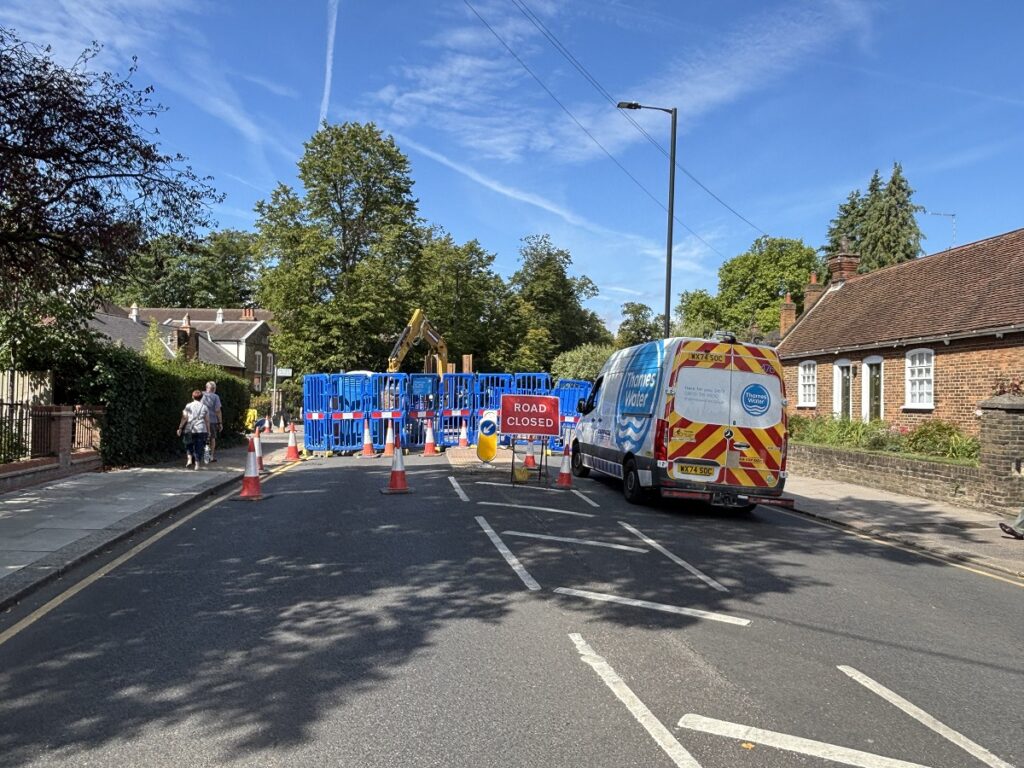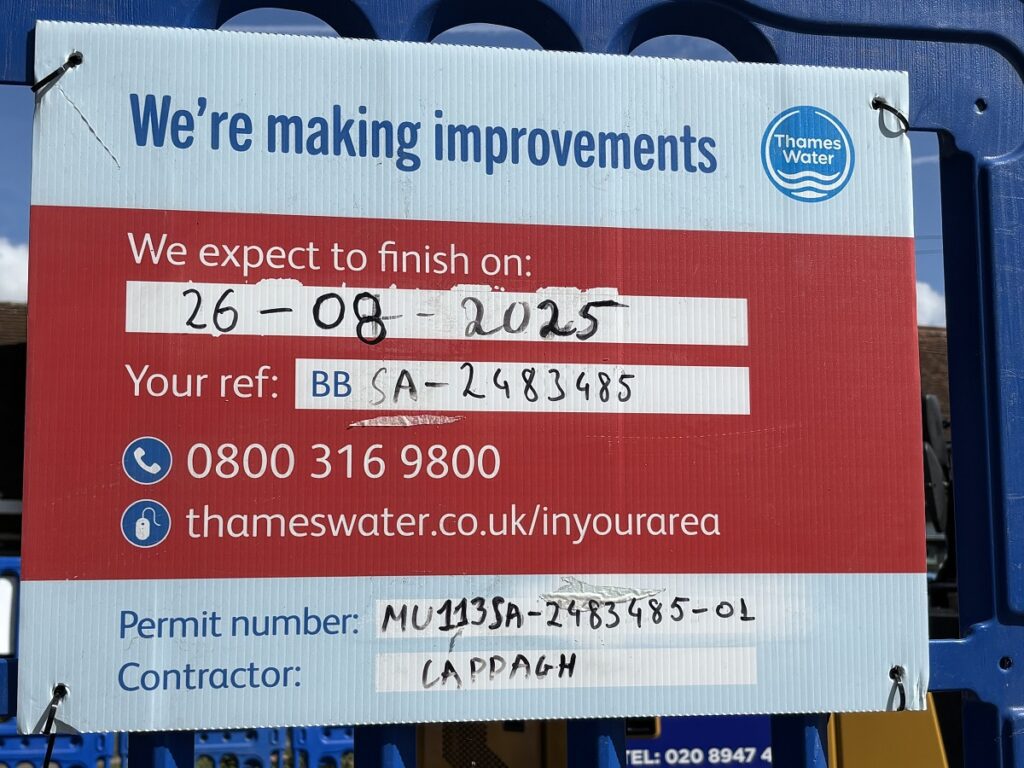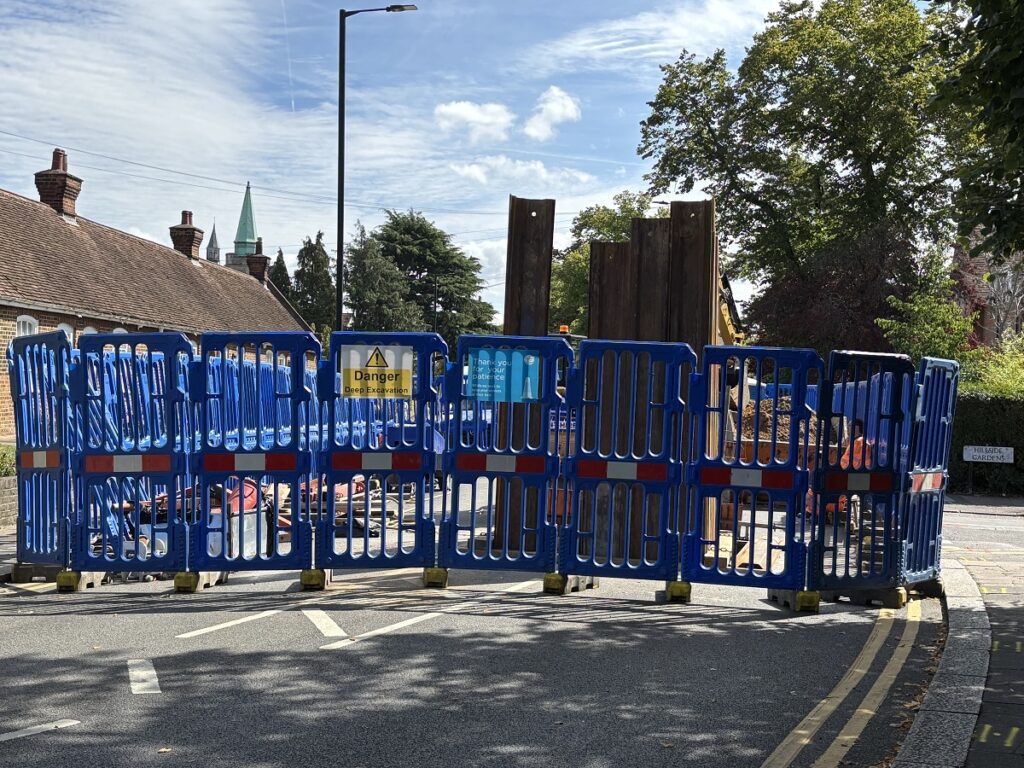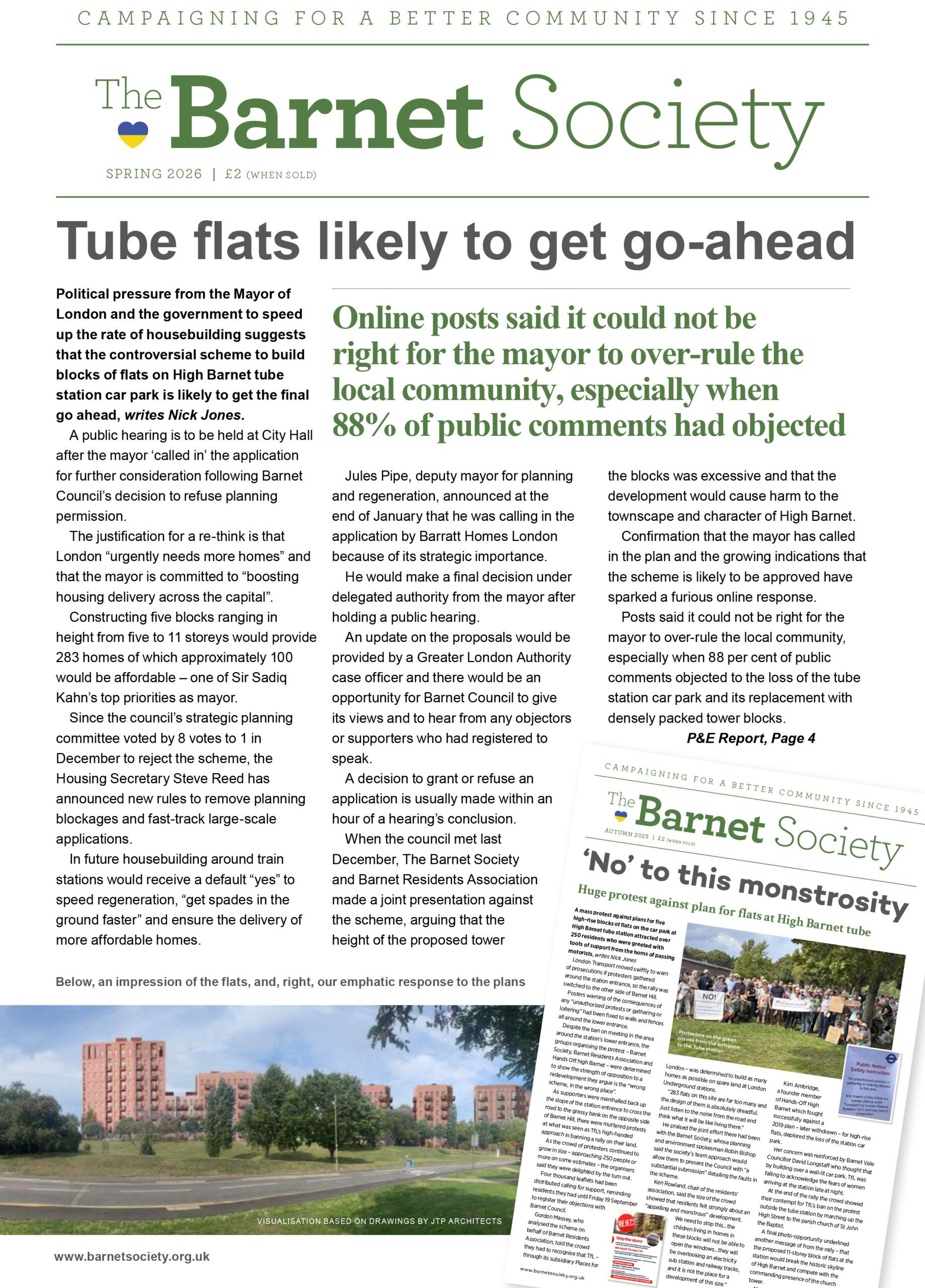Future road closures such as Wood Street, High Barnet, could cost contractors as much as £2,500 a day

A three-week closure of Wood Street, High Barnet – resulting in widespread rush hour traffic disruption and a lengthy diversion for three bus routes – is an illustration of why there is likely to be strong support for Barnet Council’s plan to force utility companies to speed up their work.
Road pricing would impose lane rental charges on excavating main roads across the borough punishing contractors with escalating costs.
Currently the scheme is out for consultation and if approved by both the council and the Secretary of State for Transport, the charges would take effect from April 1 next year.
Lane closures on Barnet’s busiest main roads would cost utility companies and contractors a daily charge of £2,500.

Wood Street’s closure in both directions between the Black Horse roundabout and Hillside Gardens – from August 5 to August 26 – is causing traffic jams, delays and unnecessary costs for road users.
Three major bus routes along Wood Street – 107, 263 and 307 – are being diverted along Stapylton Road, St Albans Road and the High Street.
Ambulances serving Barnet Hospital are also unable to use the most direct route.
Adding to the congestion is the pinch point beside the Black Horse public house where buses and large commercial vehicles have to pass in single file along a narrow section of Stapylton Road.
Thames Water has put up notices apologising for the inconvenience. Contractors are working at a depth of 3.5 metres to repair a collapsed sewer.
But as with a similar three-week closure of Barnet Road, Arkley, for sewer repairs – again in both directions and resulting in lengthy bus diversions – there appears to be little if any late night or weekend working by the contractors.
Nearby residents in Arkley complained vociferously about the time taken to complete the work.
A diversion of the 107 (New Barnet to Edgware) required buses to follow a route along the High Street, St Albans Road and the A1 and meant the withdrawal of buses along Wood Street and Barnet Road.
Barnet Council’s consultation on the introduction of a lane rental scheme for the borough’s main roads opened on 30 July; closes on 9 September; with feedback due by 25 September so that a decision can be taken by a government deadline of 30 September for schemes to take effect next April.
A note on the consultation – https://www.engage.barnet.gov.uk/lane-rental-scheme-consultation – says the introduction of lane rental charges on the busiest roads at the busiest times should limit the amount of disruption across the borough’s road network.
Transport for London have been operating a lane rental scheme on some highways since 2012 and the introduction of the scheme in Barnet would affect just under 14 per cent of the borough’s roads.

Wood Street is one of the main roads that would attract the highest charges of up to £2,500 a day for lane rentals between 7am and 7pm on weekdays and between 7am and 10am and then 3pm to 7pm at weekends.
3 thoughts on “Future road closures such as Wood Street, High Barnet, could cost contractors as much as £2,500 a day”
Comments are closed.


I don’t know what this story is moaning about, although “road users” is a tendentious clue. The lack of traffic on this road in the past few weeks has been blissful. Permanently pedestrianise it – we don’t need more Alan Partridges .
Adding to the misery are the 4-way traffic lights at the junction of Barnet Hill/High Street and Meadway effectively closing down this area and causing long tailbacks back to St Albans Road and Everyman cinema. We will also have the planned lane closure outside 7d High Street (between Subway and the nail bar) to deal with in the next few days.
Luckily, Hadley Common road is open, although this narrow gated road is unsuitable for some of the vehicles that attempt to use it. During the recent railway line closure, rail replacement buses were using Hadley Road and Hadley Common to get to Hadley Wood train station.
I’d rather see local councillors and MPs held personally accountable, as well as companies like TFL, so that the fines are aimed at them rather than using the contractors as scapegoats for other people’s incompetence.
Maintaining public roads should never have been out-sourced or privatised in the first place, and TFL sends buses down roads that simply aren’t fit for them. The 384 buses destroyed Salisbury Road and it needed to be completely rebuilt. And since the resurfacing we’ve had a year of intermittent closures to repair burst water mains, severed electrical cables and gas leaks.
And for the past week Alston Road has been closed for resurfacing. And the main cause of the damage? I think it’s pretty obvious it’s the buses.